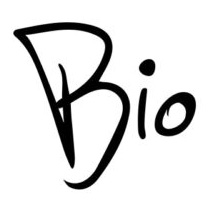BIO Announces Two Winners for the 2025 Plutarch Award
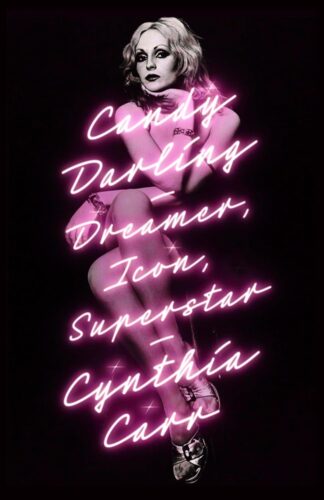
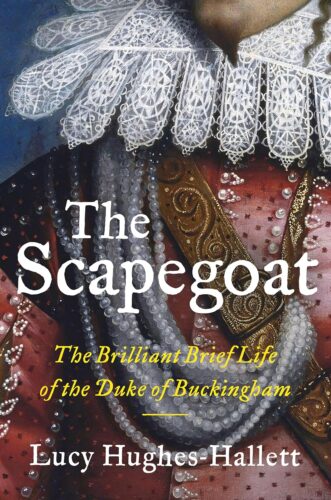
Biographers International Organization (BIO) announced today that two books would share its 2025 Plutarch Award for the Best Biography of 2024. The winners are Candy Darling: Dreamer, Icon, Superstar by Cynthia Carr (Farrar, Straus and Giroux) and Scapegoat: The Brilliant Brief Life of the Duke of Buckingham by Lucy Hughes-Hallett (Harper). The Plutarch is the only international prize of its kind as it’s selected by a committee of five distinguished biographers, chaired this year by Ruth Franklin. The prestigious award comes with a $3,000 honorarium, which will be equally divided between the two winners.
“As works of biography, these books are so different that they are almost impossible to compare,” said 2025 Plutarch Award Committee Chair Ruth Franklin. “We thought it was worth acknowledging both: Scapegoat for its innovative structure and engaging, intelligent style; and Candy Darling for its emotional pull and sensitive handling of its subject.” BIO President Steve Paul added, “The pool of Plutarch finalists reflects what feels like a bountiful period for biography in general. I commend our panel of judges for breaking precedent and highlighting two wildly different but highly engaging life stories.”
“Shaved her legs and then he was a she,” Lou Reed sang in “Walk on the Wild Side,” his song about Candy Darling and other New York City counterculture icons of the 1960s and 1970s. As Carr demonstrates in this haunting and deeply sympathetic portrait, it wasn’t anywhere near that easy. From Candy’s years growing up in Long Island—as a child who “looked like a girl dressed in boy’s clothing,” she was abused by her father as well as her peers—and continuing through her glamorous yet down-and-out twenties, when she was crashing in friends’ spare rooms even as Andy Warhol made her one of his “superstars,” her life was marked by discrimination, poverty, and physical trauma, which culminated in hormone treatments that likely contributed to her tragic death from stomach cancer at age twenty-nine. Working with archival interviews done by a close friend of Candy’s as well as her own detailed research, Carr insists on her subject’s individuality even as Candy comes to represent something larger: the immense bravery of living as a transgender person at a time when it was illegal for men even to wear women’s clothing in public.
With a novelist’s eye for the extraordinary, Hughes-Hallett conjures an entire bygone world: the masques, dances, art, food, and attitudes towards “effeminacy,” among other curious subjects, of Jacobean era England. At the center of it all is George Villiers, the Duke of Buckingham, who rose from humble beginnings to become the favorite—and lover—of King James I, as well as (in the words of his unreliable detractors) “a devil, a spotted monster, a comet that disrupted the natural order.” Hughes-Hallett sketches Villiers with obvious sympathy, and her portrait is stylish, vivid, and frequently surprising. This biography combines sexual politics with passages on warfare and Westminster, resulting in an engagingly modern take on a dramatic period of history.
Lucy Hughes-Hallett responded to news of her win, saying, “I’m thrilled that my book and I are joining the illustrious list of past winners of this prize, and I love the prize for its name. I learnt from him how flexible biographers must be. How we have to find strategies to deal with sources that contradict each other or deliberately mislead. I learnt from him the thrill of inventing forms that could make a Life feel life-like. I got the message that a biographer is first and foremost a teller of stories.”
Hughes-Hallett also congratulated her co-winner, Cynthia Carr, “Our subjects are separated by centuries, but I like it that they both set up challenges to repressive sexual orthodoxy. Both basked in celebrity, and suffered for it. Some stories never get old.”
Cynthia Carr said of her win, “I especially appreciate this recognition given that Candy Darling was a transgender icon, and we now have a federal government telling us that trans people do not exist – and have no rights. I began my work on this in 2013. It wasn’t easy. Candy never even had a place to live and research material was scattered. But I decided to write the book after learning about the huge gulf between her glamorous image and the realities of her life. I can also assure you that Candy Darling was never political, but she knew who she was.”
Cynthia Carr (New York) is the author of Fire in the Belly: The Life and Times of David Wojnarowicz, winner of a Lambda Literary Award and a finalist for the J. Anthony Lukas Book Prize; Our Town: A Heartland Lynching, a Haunted Town, and the Hidden History of White America; and On Edge: Performance at the End of the Twentieth Century. Candy Darling won the National Book Critics Circle Award for Biography, was a finalist for the Los Angeles Times Book Prize, and was featured as a best book of the year by The New York Times, Kirkus Reviews, and NBC New York.
Lucy Hughes-Hallett (London) is the author of The Pike: Gabriele d’Annunzio, which won the Baillie Gifford Prize, the Duff Cooper Prize, the Political Book Awards Political Biography of the Year, the Costa Biography Award, and was chosen by The Sunday Times as the biography of the decade. Her other books include the novel Peculiar Ground; Fabulous, a collection of short stories; and the cultural histories Cleopatra and Heroes
The 2024 Plutarch Committee consisted of five esteemed biographers: Ruth Franklin (Chair), Vanda Krefft, David Maraniss, Lisa Napoli, and Lance Richardson. Together they considered over 150 titles from the US and UK. The top ten biographies were announced in March 2025 and from those were chosen the five finalists, announced in April.
Information about the three other finalists is available here. Learn more about the longlist titles here.
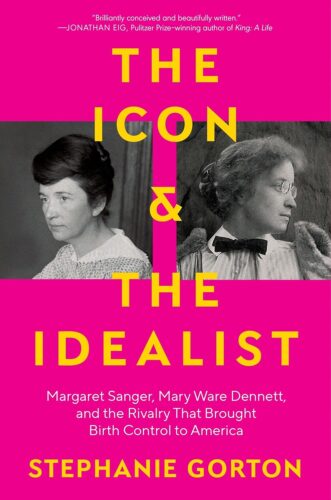 The Icon and the Idealist: Margaret Sanger, Mary Ware Dennett, and the Rivalry That Brought Birth Control to America by Stephanie Gorton
The Icon and the Idealist: Margaret Sanger, Mary Ware Dennett, and the Rivalry That Brought Birth Control to America by Stephanie Gorton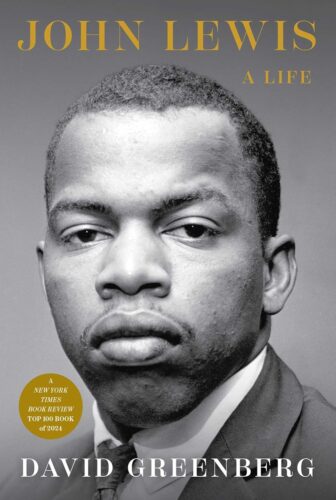 John Lewis: A Life by David Greenberg
John Lewis: A Life by David Greenberg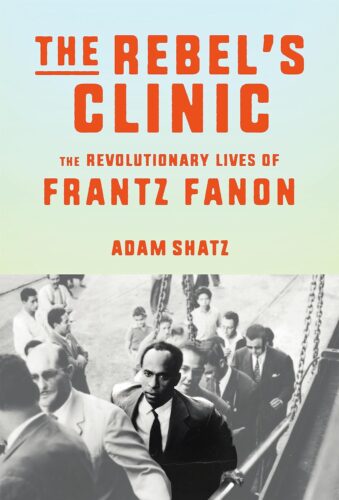 The Rebel’s Clinic: The Revolutionary Lives of Frantz Fanon by Adam Shatz
The Rebel’s Clinic: The Revolutionary Lives of Frantz Fanon by Adam Shatz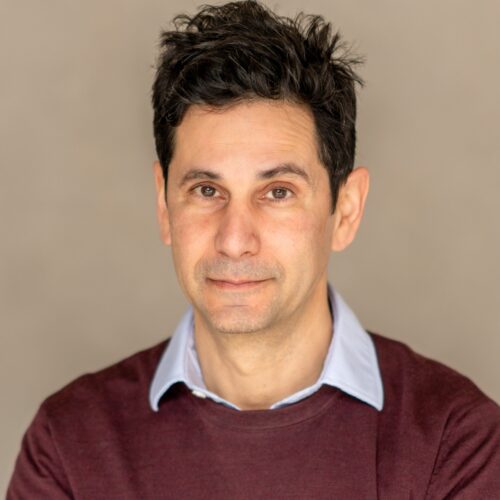
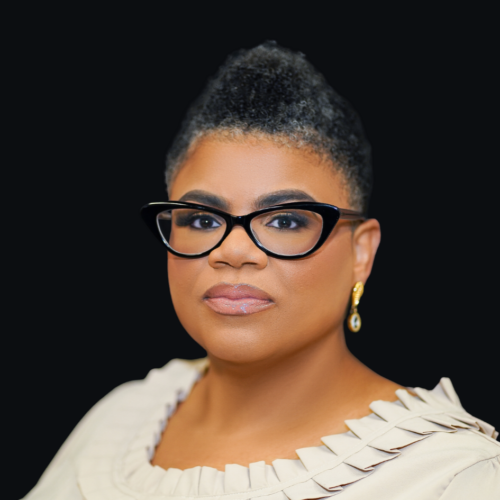
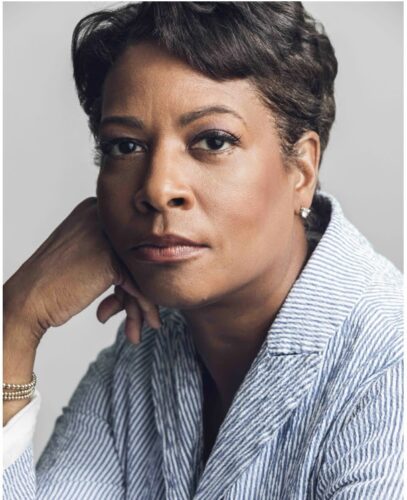

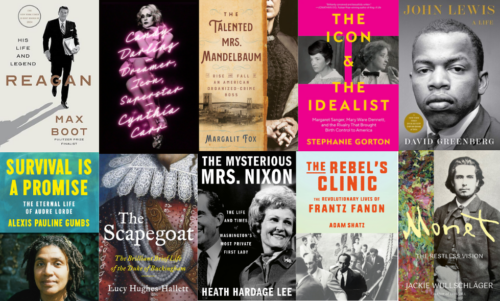
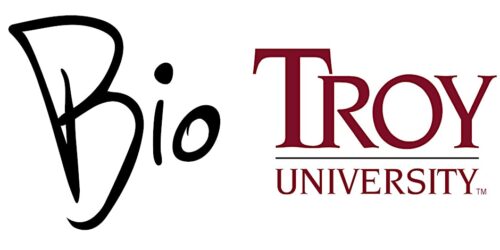
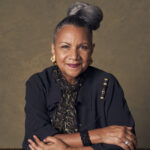 The conference keynote speaker will be A’Lelia Bundles, author of On Her Own Ground: The Life and Times of Madam C.J. Walker, a New York Times Notable Book about her entrepreneurial great-great-grandmother and the nonfiction inspiration for Self Made, the fictional Netflix/Warner Bros. series starring Octavia Spencer. Her latest book, Joy Goddess: A’Lelia Walker and the Harlem Renaissance, the first major biography of her great-grandmother, will be published by Scribner on June 10, 2025.
The conference keynote speaker will be A’Lelia Bundles, author of On Her Own Ground: The Life and Times of Madam C.J. Walker, a New York Times Notable Book about her entrepreneurial great-great-grandmother and the nonfiction inspiration for Self Made, the fictional Netflix/Warner Bros. series starring Octavia Spencer. Her latest book, Joy Goddess: A’Lelia Walker and the Harlem Renaissance, the first major biography of her great-grandmother, will be published by Scribner on June 10, 2025.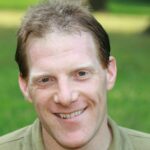 David Greenberg will also be a featured speaker at the conference. He is a professor of history and journalism and media studies at Rutgers University. His latest book, John Lewis: A Life (Simon & Schuster, 2024), has been called “panoramic and richly insightful” (Brent Staples, The New York Times) and a biography that “captures Lewis’s life, achievements, and times with heart-stopping precision” (Booklist).
David Greenberg will also be a featured speaker at the conference. He is a professor of history and journalism and media studies at Rutgers University. His latest book, John Lewis: A Life (Simon & Schuster, 2024), has been called “panoramic and richly insightful” (Brent Staples, The New York Times) and a biography that “captures Lewis’s life, achievements, and times with heart-stopping precision” (Booklist).